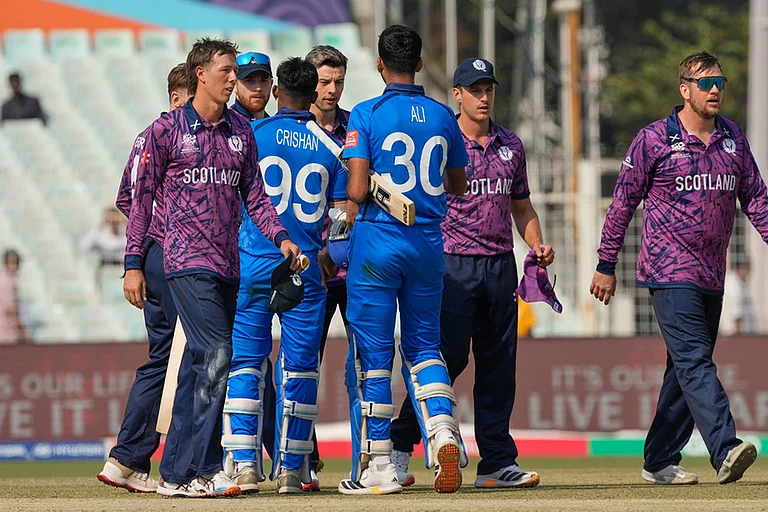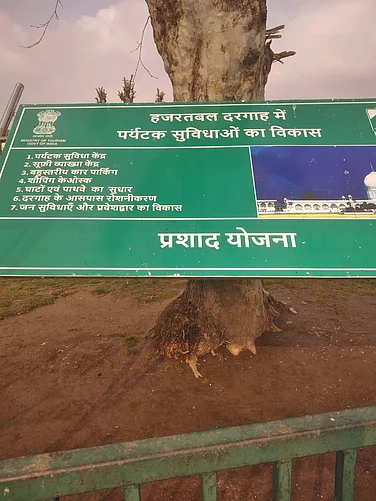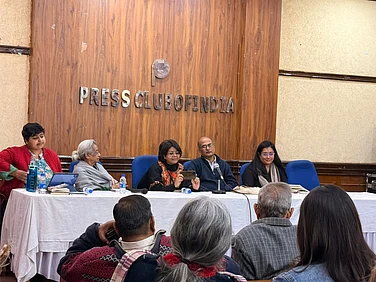The result: a virtual opening of the flood-gates. At Thiruvananthapuram, issues such as the perceived lack of benefit of economic reforms for the rural and urban poor, the strong support for positive discrimination as state policy and the proactive role vis-a-vis the more specific demand for reservations to be continued and to be extended to Dalit Christians, the hawala scandal and corruption in the political system it has exposed as well as the misuse of political power were furiously debated. The effect of these discussions is obvious in the guidelines issued by the CBCI, where the community has been asked to vote for parties and candidates who:
But perhaps even more significantly, the CBCI urged the community to reject those parties which want to maintain the status quo. They added that no political party qualifies for the full support of the Christian community and that the final decision was being left to individuals, who should make up their minds in the light of these guidelines.
Also, the National Council of Churches in India (NCCI)—the coordinating body for the major non-Catholic churches which command the loyalty of a sizeable number of the nearly 13 million Christians who belong to non-Catholic denominations—is meeting at Nagpur to frame its guidelines for the laity, which too are expected to mark a radical departure from the past.
The birth of a new and more assertive Church in India seems complete, and the ascendancy of liberation theology and a more radical approach is easily discernible. "The catalyst for this expression of the mood of radicalism in the Church, which has been growing for the past two decades now, has undoubtedly been the agitation for reservations for Christians of Dalit origin," says Pritam Santram, Bishop of Delhi, Church of North India (CNI).
The Auxiliary Bishop of Delhi, Vincent Concessao, puts the issue in perspective: "There is a new awareness within the Church that it is not just a welfare society. We were, perhaps, guilty of not paying enough attention to the injustice meted out to Dalit Christians. And it is an issue that encompasses all the aspects that the Indian liberation theologists have been concerned with—social realities, economic disparity and political empowerment. Also, the pressure came from below—from the clergy and the laity—and there was a realisation of this fact by those in the upper echelons of the ecclesiastical order."
Says a senior clergyman who participated in a high-powered meeting between CBCI and NCCI representatives in late '95 to discuss the approach to be adopted by the Church towards the coming general elections: "The NCCI guidelines could well be even more radical. However, we are not certain yet whether it will announce them publicly like the Catholics have done, or stick to informing the clergy of their decisions and ask them to inform their parishioners at an informal level."
ACCORDING to a bishop who attended the CBCI meeting, it is clear that the emerging radicalism of the Church, which for him is the "manifestation of three interconnected phenomena", is here to stay. "It is the result of the success of the Church in taking the faith to the hinterland. The work of the Church—especially its emphasis on education, development and empowerment—in the most backward areas of the country has resulted in the demands of these sections gaining more prominence in the Church's agenda. Secondly, an important offshoot of this has been the change in the profile of the clergy that it has brought about. Men of the cloth who themselves have suffered social and economic injustices are naturally more sensitive to the need to redress them. Finally, the past two decades have seen liberation theology come into its own in the Third World and India is no exception."
And the Church has already begun to voice the feelings of the community to politicians. "We have made it clear that while we are not against any particular political party, the community does feel let down. And since the Congress has been in power for the majority of the years after Independence and Christians have always voted for it, our disappointment is greatest with the Congress," admits a senior Church official. According to Archbishop Alan de Lastic, vice-president, CBCI: "The community has 21 MPs, including ministers, and we are encouraging more people to take active part in the political process as that is the only way we can make a difference." ?
Others feel the Church has to guard against going down the path of encouraging en bloc voting by the Christian community. "We realise that this is not a very healthy trend and that is why we are trying to resist it. But there is a great degree of disillusionment within the community which never thought in these terms before. I am afraid this trend is a consequence of the polarisation that has taken place between the communities. Many Christians, including a section of the clergy, feel this factor has begun to dominate the Hindu and Muslim communities. We feel let down not only by politicians but also by the Indian state," says a clergyman on condition of anonymity.
De Lastic, however, maintains that the Church has concentrated on advising the community "on moral issues and those pertaining to justice, equality and freedom". But, as nearly all Church officials spoken to admit, these issues in no way preclude charting out guidelines for social, economic and political matters.
In fact, the struggle for the higher clergy remains that of balancing what they see as the issues the Church feels strongly about—and consider "national issues of justice, equality and human rights" and want to portray them as such—with the demands of an increasingly disillusioned laity and the radical men of the cloth. So, while those in the upper echelons are still refraining from rocking the boat too hard—as was seen in the CBCI meet—they have had to concede some of the demands.
Says Concessao: "It is a proven fact of history that only pressure from below leads to real change. We have to understand the signs of the times and interpret them for the benefit of the community in the light of the Gospel." But the course for the Christian diaspora in India, with an assertive Church at its head, remains to be charted.


























